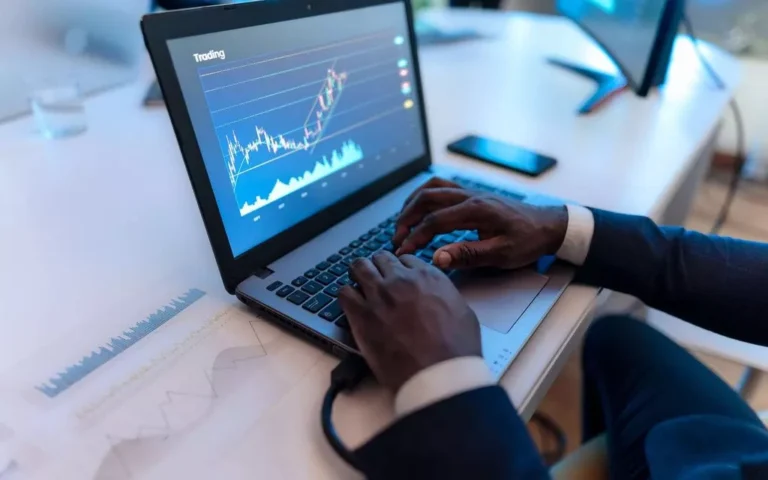Content
Holders of these tokens are offered voting rights to what is a token participate in a project’s major decision-making processes. You can check out your online purchases using crypto coins with supported merchants. For example, Microsoft has been using Bitcoin(BTC) as a payment method since 2014 to buy Windows OS, phones, and Xbox. Crypto coins also allow you to conduct frequent microtransactions with lower fees per transaction. This feature helps offer subscription services, donations, or rewards to your favorite content creators. Master The Crypto is a financial publisher that does not offer any personal financial advice or advocate the purchase or sale of any security or investment for any specific individual.
Token vs Coin: Security Token, Equity Token, or Utility Token
Crypto coins are Smart contract a major component fueling the function of DeFi-based platforms or apps. Crypto coins can function as a store of value like fiat currencies. This feature plays a crucial role in institutions’ and professional traders’ consideration of cryptocurrencies as an investment and trading instrument. Alternative cryptocurrency coins are also called altcoins or simply “coins”.
Blockchain for businesses: The ultimate enterprise guide
These can include digital asset products such as NFTs but may also include things beyond the blockchain ecosystem https://www.xcritical.com/ like tickets to real world experiences or the deed to a real world asset. Your private key (remember, think password) is what you will use to prove your ownership of the digital asset if/when you want to do something with it. If you wanted to send some cryptocurrency to another person, for instance, you would need your private key signed to the transaction in order for it to be accepted as a new blockchain entry. A digital asset is created, or minted, when new information is added to a particular blockchain. Through blockchain entries, users can exchange existing digital assets and/or create new (mint) ones.
Differences between Cryptocurrencies and Crypto Tokens

These tokens help you access services of crypto projects through dApps, such as buying digital items. For example, you can use The Decentraland project’s MANA token to customize your digital avatar and participate in gaming activities. Governance tokens were introduced to strengthen the decision-making process in the blockchain ecosystem.
Regulatory Considerations for Cryptocurrency
Coins and tokens have different origins, use cases, and technological underpinnings. This distinction is an important one for anyone hoping to understand cryptocurrency on a deeper level. A blockchain is a type of distributed database, meaning it’s hosted (or “lives”) on computers all over the world. These computers—which can even be in someone’s home—are referred to as “nodes” of the blockchain. This distribution of data (core to the new version of the Internet called “Web3”) means the cost of operating nodes is distributed as well.
- This means that when analyzing them, you’ll often look at similar metrics; their use, active holders, value, allocation, market capitalization and so on.
- Crypto coins also allow you to conduct frequent microtransactions with lower fees per transaction.
- For example, BTC has a fixed total supply of 21 million coins, whereas ETH has an infinite supply.
- Doge is based on the image of a Shiba Inu dog and has a loyal and enthusiastic fan base.
- Digital assets like cryptocurrencies, NFTs and other tokens are past “emerging” — they’re here to stay.
Put simply, the question of coins or tokens depends very much on the specific use-case and the blockchain you want to use. Typically, a cryptocurrency token created using the Ethereum platform is called an ERC20 token. Such tokens can be stored and distributed between Ethereum addresses. Most cryptocurrency tokens are designed to power decentralized applications (dApps) on the blockchain.
Even as an Ethereum token, DAI has far surpassed the Avalanche Network in terms of market cap. Crypto coins and tokens have a variety of use-cases and there is, of course, some crossover, with both coins and tokens having their uses as an exchange of value. This means that when analyzing them, you’ll often look at similar metrics; their use, active holders, value, allocation, market capitalization and so on.
For one, utility tokens are typically not considered securities and are therefore subject to less stringent regulations. They’re often seen as a speculative investment, with the potential for high returns if the underlying project is successful. Security tokens can, therefore, be considered the crypto version of shares in a digital company. Buying a security token means you’re investing in a project or company, and you expect to receive a return on that investment.

By recognizing the different use cases and functionalities of these two types of digital assets, individuals can make smarter investing decisions. Running nodes costs money, both in the form of hardware and electricity. So blockchain networks need a financial reward system to incentivize people to operate nodes. To compensate node operators for their costs, and the work of processing, validating, and adding new transactions, each blockchain will have a corresponding cryptocurrency. This cryptocurrency (e.g. SOL or BTC) is native to one—and only one—blockchain.
Crypto coins are designed to be used as currency, while crypto tokens are intended to represent an interest in an asset and facilitate transactions on a blockchain. And lastly, both cryptocurrencies and crypto tokens (even those belonging to different blockchain networks) can often be stored in the same multi-chain crypto wallet. Check out Brave Wallet if you’re looking for secure storage for all your crypto assets (including cryptocurrencies, tokens, and NFTs) built right into your browser. Coins refer to digital assets that operate on their blockchain and serve primarily as a medium of exchange, a store of value, or a unit of account. They are often used for transactions, investment, and as a means of raising capital through initial coin offerings (ICOs) or token sales. When cryptocurrency tokens are created, they are issued to users through an initial coin offering (ICO), similar to an initial public offering (IPO) on the stock markets.
For this reason, developers prefer top blockchains like Ethereum, Solana, and BNB Chain for token creation. Crypto coins are also referred to as layer-1 coins as they represent the primary blockchain layer. For this reason, fast, scalable, and cost-efficient blockchains like Solana’s layer-1 coin, SOL, are used for features like paying transaction fees, interacting with dApps, and more. In this article, we’ll uncover the differences between coins and tokens in crypto.
Most blockchains charge a fee (known as a transaction fee or “gas” fee) to interact with the network. These fees prevent spam, and provide a way to compensate those who keep the network up and running. For investors, it’s important to distinguish between these different types of tokens because the terms are loosely applied by many people, which can cause confusion for those just starting out.
For example, Binance is based in Tokyo, Japan, while Bittrex is located in Liechtenstein. Reading through various best crypto exchange reviews online, you’re bound to notice that one of the things that most of these exchanges have in common is that they are very simple to use. While some are more straightforward and beginner-friendly than others, you shouldn’t encounter any difficulties with either of the top-rated exchanges. That said, many users believe that KuCoin is one of the simpler exchanges on the current market. Time isn’t the only thing it saves them — if they created their own blockchain and coin instead of a dApp and token, they would need to find miners to verify their transactions, too.
